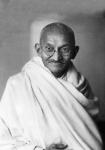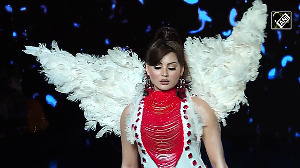One of Kolkata's enduring symbols, its thousands of hand-pulled rickshaws meandering their way through the city's alleys and lanes, is all set to become history.
On Monday, West Bengal Chief Minister Buddhadeb Bhattacharya announced that such "inhuman mode of transportation" wouldn't be allowed to ply anywhere.
"It's totally inhuman and we have made a policy decision to ban it.
"These rickshaws will be phased out over the next 4-5 months," Bhattacharya said.
An import from China in the early 20th century, the hand-pulled rickshaw, commonly known as the 'human horse', has been reviled and respected in such internationally acclaimed films as Roland Joffe's 'The City of Joy'.
During monsoons, these barefooted pullers are the only effective mode of transport through flooded roads or sun-beaten streets.
For the western world, these rickshaws have been as much part of Kolkata as the city's poverty, squalor, slums and Mother Teresa's charity work.
"Some westerners think beggars and rickshaws are a Kolkata tradition, but this not the tradition of our city,' Bhattacharya said.
These rickshaws came off China's roads after the 1949 Communist Revolution. It has taken India's leftist bastion another 50 years to see the inhumanity of the profession.
"It's been late, but we will not allow this to continue anymore," the chief minister said.
Of course, alongside concern for human dignity, a very realistic worry about image has pushed the government to act.
Rickshaw pullers' unions say they will wait and watch, hoping the government will come good on its promise to provide alternative sources of livelihood for them.





